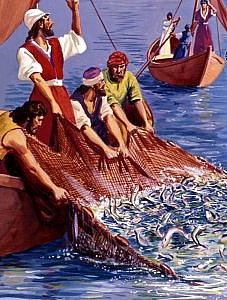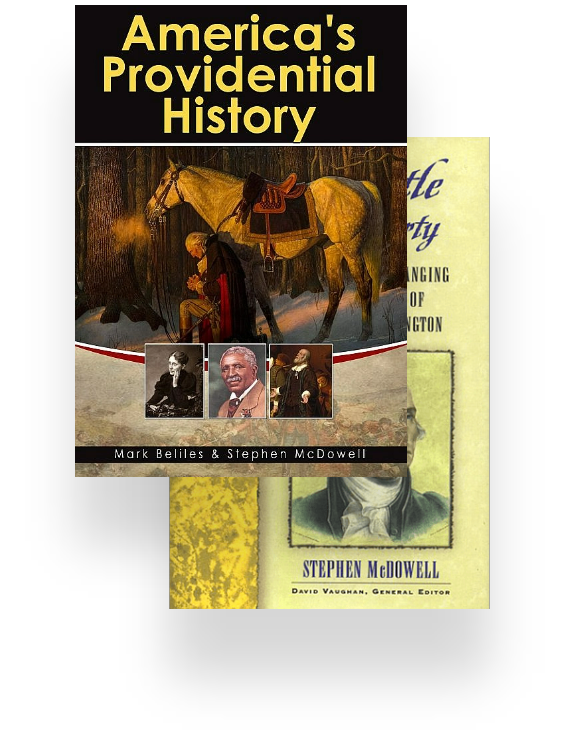PF UNIVERSITY


by Stephen McDowell
God created man and the earth to be productive, to be fruitful (Gen. 1:11-12, 20-22, 24, 28). After making man, both male and female, in His image,
God blessed them. And God said to them, “Be fruitful and multiply and fill the earth and subdue it and have dominion over the fish of the seas and over the birds of the heavens and over every living thing that moves on the earth” (Gen. 1: 28, ESV).
The Hebrew word translated “subdue” is kabash, which means “to subdue, subjugate, dominate, bring into subjection.” This word is also used in reference to Israel subduing the land of Canaan so it would provide for their needs (Num. 32:22, 29; Josh. 18:1). God placed man in control of His creation as His vice-regent or steward. We are called to subdue, have dominion over, and steward the earth in order to meet our needs and advance His creation commission. All living and non-living things are under man’s dominion.
Our stewardship is further explained in Genesis 2: “then the Lord God took the man and put him into the garden of Eden to cultivate it and keep it” (v. 15). Man’s mission was to cultivate the land God gave him. Every tree God created was good for food (Gen. 2:9). To keep trees, to cultivate land, to subdue the earth are actions of good stewardship.
In order to “be fruitful and multiply” we must subdue or control the earth. We are to develop and produce more and better goods from the earth. This is part of the mission God gave to mankind from the beginning. We are also to replenish the natural resources. God created living things such that they reproduce and multiply, making it possible for us to replenish the earth.
God’s creation is good because it was made by a good Creator, and the creation reflects the nature and character of the Creator (Rom. 1:20). It is also good because it enables man – God’s highest creation – to sustain himself and to progressively advance as he learns how to be a better steward. As man learns how to properly manage God’s property, he becomes more and more like God. He becomes a co-creator, taking the original creation material and using his God-given knowledge and talents to make new things that bring about the amelioration of mankind.
God’s blessing comes via man’s increased productivity using the resources He created in the earth and universe. Material abundance is a blessing of God (Deut. 8:7-10). Disobedience by man brought a curse upon him and the earth seen via hindered productivity (Gen. 3:17-19).
Material productivity is good. It is part of our godly mission. Productive occupations are good. Jesus and His apostles were involved in occupations that produced useful goods and services. Jesus was a carpenter, Paul was a tentmaker, James and John were fishermen. Many of His apostles continued their business while conducting their “religious” work of preaching the Gospel.

God’s goal for us is to be productive, both in our spiritual and natural activities. We are to be fruitful in spiritual disciplines, like evangelism, worship, prayer, Bible study, et cetera. We are also to be fruitful in our calling – in family matters, our occupation, business endeavors, and other responsibilities in life.
Wealth comes from productivity, not from having more money, even honest money like gold and silver. Money does not equal wealth; productivity does.
Productivity is the goal, not merely having a job or obtaining more money (though money, a commodity to facilitate exchange, can reflect your labor and productivity). Years ago when I visited Manila, I saw many people cutting grass with machetes. Many of these low-wage laborers were employed by the government in its hope of full employment, but their work was of little value. They were hindered from entering into their highest potential by performing menial labor that could be accomplished in a fraction of the time with one lawn mower. The goal of a nation or individual should not be merely jobs for all. It should be for everyone to be as productive as possible.
Our economic goal should not be to get everyone a bigger house and nicer car and plenty to eat. It should be to maximize the productivity of every citizen. This involves everyone continually gaining knowledge and skills. Preparation helps us be productive, whether growing in our relationship with God and all the spiritual disciplines, or developing our business skills and knowledge.
Living a life of leisure is not our mission in life; rather it is for all citizens to be as productive as possible. Drug dealers and other criminals can obtain great riches, and even give these to others. But they do not produce needed goods or services, and hence, do not contribute to the increased wealth of a nation.
Our productivity brings into being new goods and services. It is a creative process. Our physical labor is to be productive, and so is our intellectual labor. Both bring into being new things that add to our wealth. Productivity comes from land, labor, capital, individual enterprise, and trade.
Productivity is encouraged throughout the Bible. In the beginning, God shows us His desire for His creation to be productive via trees bearing fruit, the land bearing grain, and animals bearing offspring. In His original commission to man, He told him to be fruitful, multiply, and cultivate the earth; that is, be productive. He affirms that economic growth and wealth creation is good. Increased productivity is a blessing from God, while hindered productivity is a curse (Gen. 3:17-19; Deut. 8:7-10; 28). God created man with a strong internal desire to be productive, to create and develop things using the earth’s natural resources and our mental and muscular energy.
Scripture teaches that we are to benefit from the fruit of our labor. Productive labor increases the amount of goods and services that exist. The labor of the farmer and the mechanic is productive. The service of the accountant increases efficiency. Doctors help us remain healthy, adding to our days of productivity. God wants us to benefit from the fruit of our labor, because this encourages more productivity.
We see in the parable of the talents that God rewards productivity. He rewards those who use their skills and abilities to increase the minas He gives His servants (Luke 19:11-27).
God is productive — He created all things to be a blessing — and He wants man to be productive — creating goods and services to bless mankind. The devil does not create, he merely destroys. Demonic governments destroy, via direct action and also indirectly via restrictive economic policies.
Destroying goods that people value will be injurious to a society. This seems very obvious, but government leaders have done this many times. In 1933 the U.S. government enacted legislation (the Agricultural Adjustment Act) that paid farmers to plow under part of their crops. The intent was to reduce the supply and prevent prices from falling for corn, wheat, cotton and other crops. Healthy cattle, sheep, and pigs were slaughtered to keep them off the market. This specific law was ruled unconstitutional in 1936, but today the government pays farmers to limit production for similar reasons. Former President Obama’s Cash for Clunkers program paid car dealers to destroy older cars traded in for new ones. The goal? Stimulate the buying of new cars. These are just a few examples of ignorant “politicians attempting to promote prosperity by destroying productive assets.”[i]
The role of the government is to promote productivity – to promote economic growth. It is to “promote the general welfare” of the nation. This is to be done by enacting policies that increase the productivity of the people, including protecting property rights, having small taxes and minimal regulations, keeping the market free and fair, and providing safety and peace.[ii] The power of government should be small because government control destroys productivity. In a free market people choose their own occupation based upon their skills and desires, and when they work in an area they enjoy they will be more productive.
Low taxes encourage productivity. When taxes are low, people have more money to spend and invest. When governments take money, they do not invest it in productive activities. They consume it, usually on wasteful programs. Some government workers perform necessary work (to protect life and property), but they do not use money as productively as the private sector. Individuals are motivated to get the highest return on their money as possible as this directly increases their wealth. With more money, they will invest more, work more, earn more, and in the long run pay more taxes. Therefore, government policies should encourage productivity, not hinder it.
——
(This material is from the newly published book, Stewarding the Earth, A Biblical View of Economics by Stephen McDowell.)
What resources has God given man to enable him to be productive? What are the factors of production in a biblical economy? What policies can governments implement to promote productivity? What are some historical examples where men have applied biblical principles and seen good fruit following? The answers to these questions, and much more, are given in Stewarding the Earth, A Biblical View of Economics.
Order copies today.
[i] James D. Gwartney, Richard L. Stroup, Dwight R. Lee, and Tawni H. Ferrarini, Common Sense Economics, New York: St. Martin’s Press, 2010, p. 26.
[ii] See Stephen McDowell, Stewarding the Earth, A Biblical View of Economics, Chapter 7 for numerous governmental policies.
PF UNIVERSITY
The courses offered by the Providence Foundation Biblical Worldview University (BWU) are designed to equip leaders of education, business, and politics to transform their culture for Christ, and to train all citizens how to disciple nations.
DONATE
Support Providence Foundation today! Choose Minuteman, Patriot, or Founder level and make a monthly impact. Or select ‘Custom’ to contribute now. Join us in shaping our nation’s future
